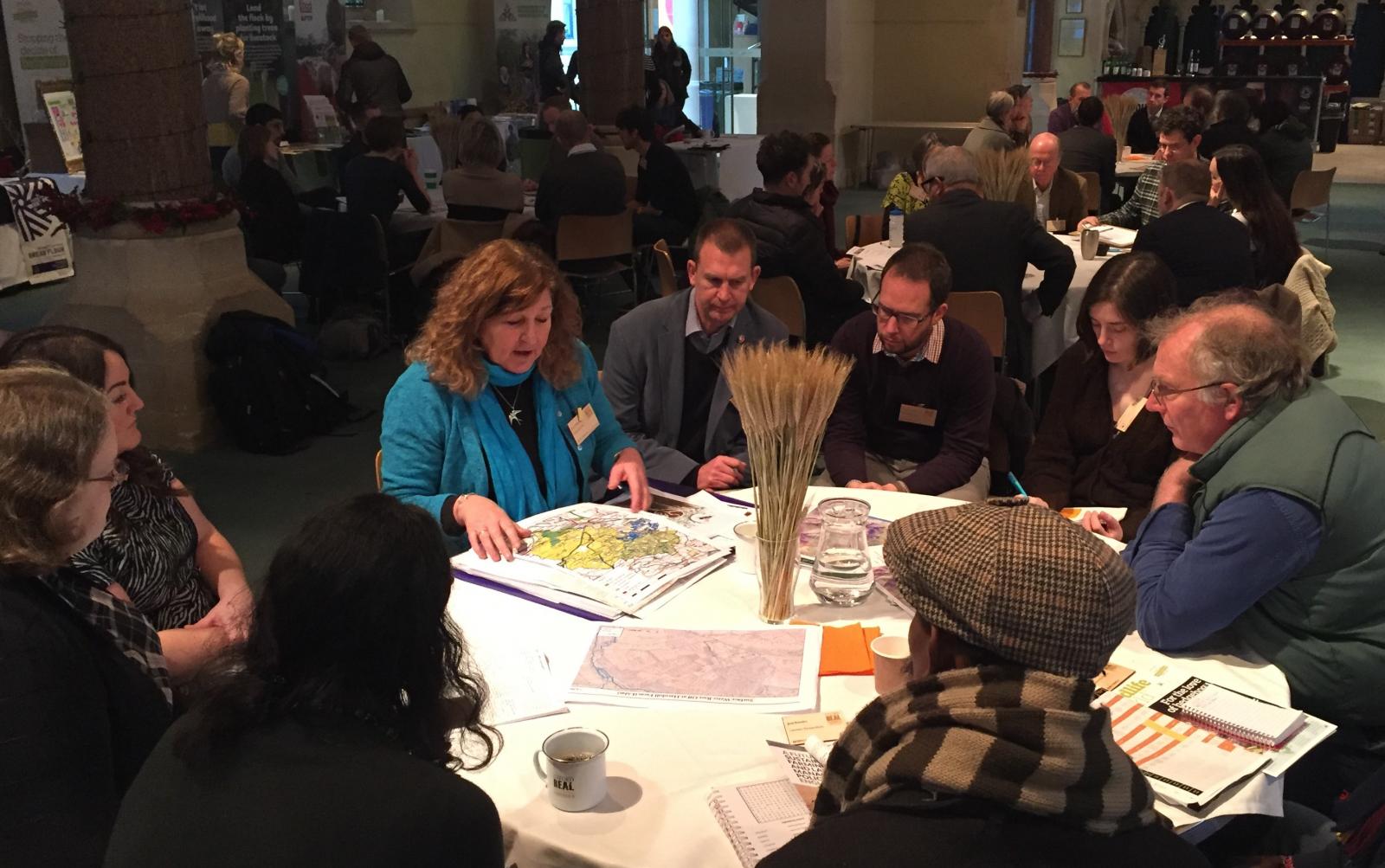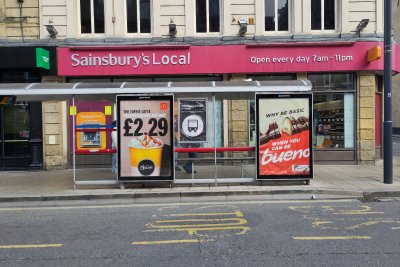 Photo of Sustain Brexit Forum at Oxford Real Farming Conference 2019
Photo of Sustain Brexit Forum at Oxford Real Farming Conference 2019
Archived project
Please note that the content on this page has been archived and is not actively reviewed at present.
Whilst a large group such as this did not attempt to agree specific commitments to action, there was a general feeling emerging of prioritisation around the following key themes:
- Short-term, we need to organise well, to fight to ensure that existing standards and protections don't get lost. The Great Repeal Act is critically important. Groups such as Green Alliance (Greener UK), ClientEarth and New Economics Foundation (NEF) are pulling together good work on this, especially on environment issues. Wider cross-sector engagement is needed, and we can all learn from pioneering work on e.g. previously: the Climate Change Act; currently: EU clean air standards, resulting in the call for a new UK Clean Air Act; and to plan our own sectoral work that is supportive and engages wider audiences. There's also work beyond ‘de-regulation’ that will be affected by the Great Repeal Bill and new trade deals, such as opening up public services and public procurement contracts further to international trade and privatisation.
- Mid-term, there is considerable enthusiasm for alliance work, provisionally described as a ‘Healthy and Sustainable Food, Fishing and Farming Act’. Further deliberation is needed on principles, forms of legislation, remit, metrics and enforcement mechanisms. This could: provide the robust foundations of a better way forward for food, fishing and farming; act as a cross-sector rallying point; help with framing the need for sensible protection and promotion of national values and assets; and flush out likely opposition. New statutory mechanisms for determining ‘public money for public good’, and for implementing farming and land-use subsidies, especially those that are ‘small farmer friendly’, may also be needed, either as part of the above Act, or running in parallel.
- Meanwhile, there is considerable enthusiasm for a joint push for a decent government commission/consultation process – we could probably get progressive industry behind this too.
- Getting the voices of smaller farmers and fishers heard - several groups are already working on this and collaboration and sharing would be highly beneficial.
- Connecting with existing and new (sometimes surprising) allies will be important, to find the common ground, so that we can work together to bring more weight. The common ground might include overarching aspiration/principles; ‘red lines’ that we want to defend; as well as assess¬ment of different options and likely consequences. In this regard, connecting with progressive businesses feels crucial, if we are to make headway with decision makers and public support.
- Telling good stories, and ‘framing’ this work are critically important. Stories about the consequences of loss of standards and protections will ‘make real’ both the jeopardy and the opportunity. ‘Framing’ work is already happening with various groups. Collaboration and sharing would be highly beneficial, as there is patchy resources and expertise for such work.
- And we haven’t got much time. The processes are already in train, we need to get moving. A provisional Brexit legislative timeline would be shared with the group.
For enquiries relating to this Sustain Brexit Forum or connections to ongoing work at Sustain or within the wider alliance, please contact: Kath Dalmeny, Sustain: kath@sustainweb.org or Ben Reynolds, Sustain: ben@sustainweb.org
Brexit: We stand at a cross-roads. When the UK leaves the European Union, will our leaders uphold good standards for our food, farming, fishing and trade deals? And will they agree a sensible deal with the EU? We need to make sure that they do!
Sustain
The Green House
244-254 Cambridge Heath Road
London E2 9DA
020 3559 6777
sustain@sustainweb.org
Sustain advocates food and agriculture policies and practices that enhance the health and welfare of people and animals, improve the working and living environment, promote equity and enrich society and culture.
© Sustain 2024
Registered charity (no. 1018643)
Data privacy & cookies
Icons by Icons8


